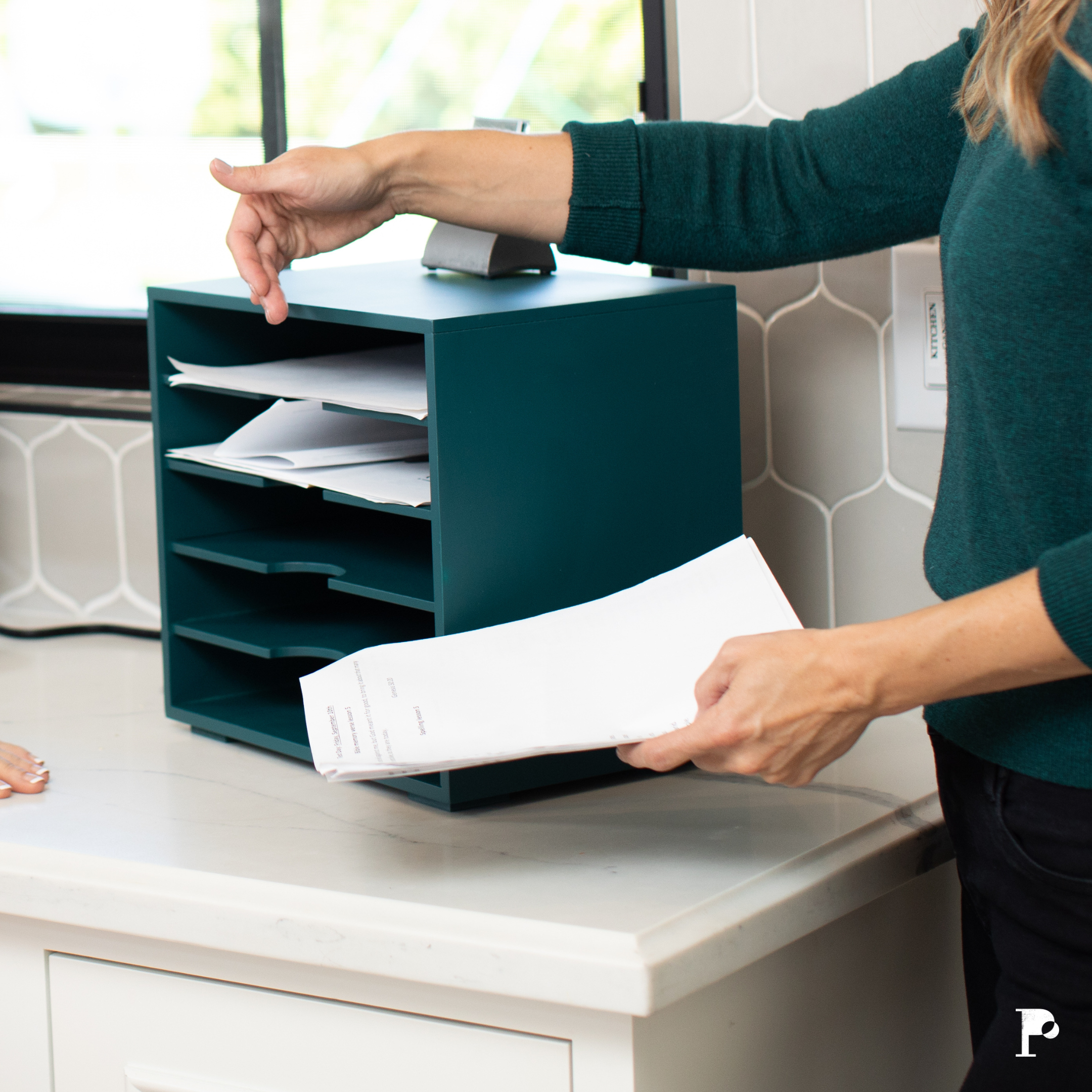We all have a general understanding of physical clutter – you feel like your junk is everywhere and not put away. You feel disorganized and it’s a challenge to be productive. Well the same can be said for mental clutter, though most of us don’t look at our minds as being able to have clutter. But it can. And it’s probably getting in your way.
Now I’m not a psychologist or therapist, but I do know that physical clutter and mental clutter greatly overlap. And to get a handle on one, you need to understand the other. Often times, mental clutter can be what’s prohibiting you from dealing with your physical clutter.
Mental clutter is essentially anything in your mind that prevents you from moving ahead or thinking straight. We all might define it a little differently based on our life situations and temperaments, but it’s the thoughts in your head that hold you back.
In Annie Rohrbach’s book Conscious Order she explains, “It is much easier to focus and move forward when your mind is clear. And when your mind is clear and in order, you can create more order in your surroundings. This is because when your mind is clear and in order, it is much easier to make decisions. Making clear decisions is the key to creating clear spaces in your mind, your home, your office, and your life.” Mental clutter and physical clutter really go hand in hand, so you can’t do one well with out the other.
Examples of mental clutter:
• thoughts that make you feel bad about yourself
• past or future conversations
• to-do lists (and to-dos you don’t even realize you need to remember)
• schedules, reminders, plans for the coming weeks
• hurt, guilt, grief, fear, self doubt, etc
• being overwhelmed
• negative environments that put you down
• stress, anxiety. anticipation
• the unknown
• anticipation of upcoming event/life transition
• and the list could go on…
Inevitably life happens and no doubt our minds will become full of clutter. They are real life situations so you can’t crawl under a rock and ignore them (though sometimes I wish I could!). Ignoring them only delays the inevitable, but becoming aware that they even exist is the first step.
This is a process so we aren’t going to cure all mental clutter through this post, but we can initiate the exploration of a few initial, thought provoking steps.
Ways to begin to shift mindsets:
• make a list of everything that‘s on your mind (see examples above). Getting it out on paper/computer can be a freeing first step. You don’t realize how much you’re holding onto up there!
• Don’t focus on what’s not working, rather what is working.
• Don’t blame others; think of how you can control your own thoughts and actions. You may be blaming kids, spouses, or co-workers for you being overwhelmed, but you’re in control of your mind, not them.
• Don’ let stressful/trying situations have power over you. Mind over matter. You are in control of how you respond.
• Find a supportive person and utilize them– whether it’s a friend or a third party counselor, find someone to talk with on a consistent basis. Often times talking through situations helps you come to your own conclusions.
• Remove yourself from negative conversations and settings. If you have people in your life who are always negative or like to gossip, step back from them. Don’t let yourself get sucked into a negative cycle.
• Prayer and times of silence
• Create space for yourself to breathe – find an escape that brings you joy. Small or big – a latte or a vacation. Whatever it is for you, create space in your life so you can enjoy the people and things you were designed to experience.
Like I said, this isn’t a quick reboot button that you can push. It’s a process, but becoming aware of the mental clutter and improving self-talk is the first step to help you create space in your life in a unique way. When your mind is cleared, it becomes much easier to make decisions about life.
Recommended reading:
Finding Spiritual Whitespace by Bonnie Gray
Conscious Order by Annie Rohrbach
posted June 11, 2015



